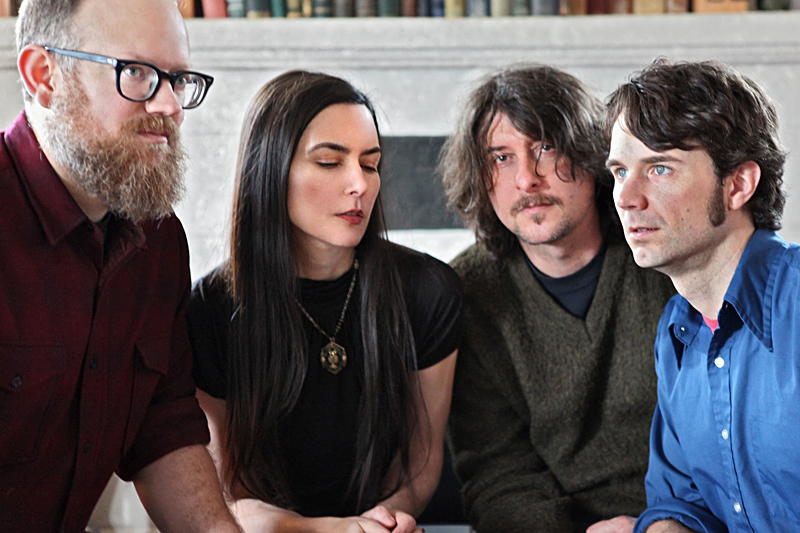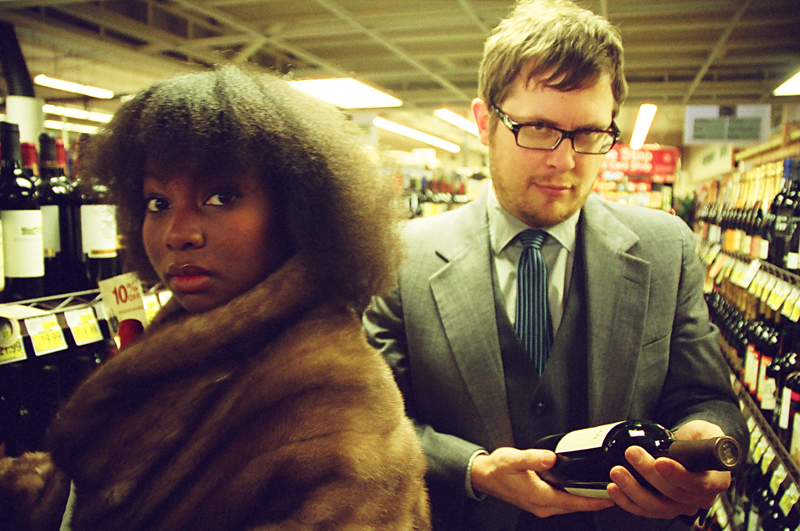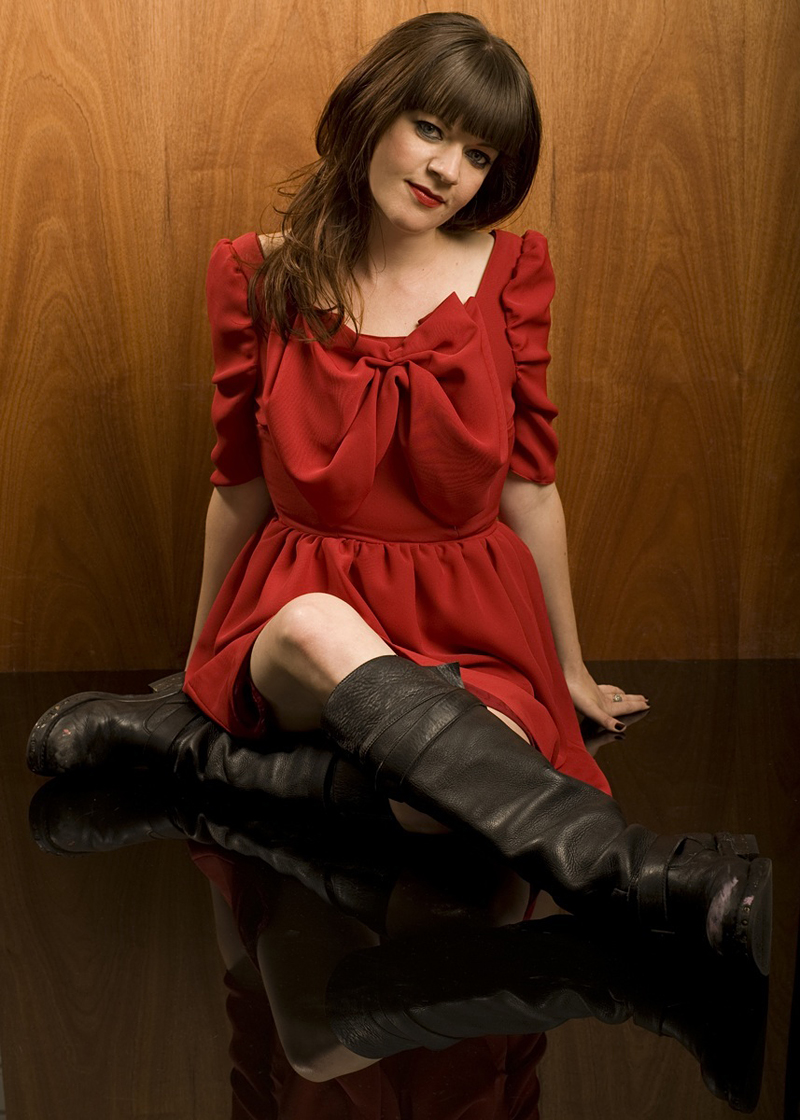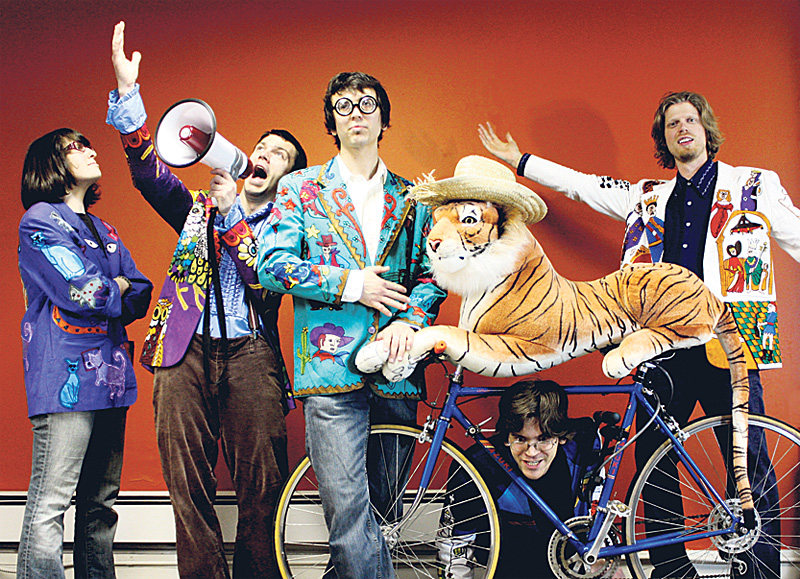Jesse Sykes has arrived early and staked out a table at Belltown’s Uptown Espresso. You wouldn’t guess from her demeanor that she is suffering from a protracted fever. But she confesses to being tired. And she has every right to be.
In the week before this interview, Sykes opened for Lucinda Williams at Woodland Park Zoo, performed in Sweden with her longtime band the Sweet Hereafter, and readied the stateside release of Marble Son, the best album of her career and the haunting, gorgeous result of one of the most tumultuous years of her life.
Since she released 2007’s Like Love Lust & The Open Halls of the Soul, Sykes has left Barsuk Records, her longtime label; left Seattle, her longtime home; left Sweet Hereafter guitarist Phil Wandscher, her longtime boyfriend; and given up drinking, her longtime salve.
Today, Sykes is intellectually engaged and ferociously curious, with her oft-noted raven-haired beauty intact. Her hands animatedly dance when she makes a point, which is often. Because there is much to discuss. At 44, when many artists become pale facsimiles of their younger, bolder selves, Sykes continues to ascend creatively. “As artists, all we have is our ideas,” she says. “I’m not patting myself on the back, but you absolutely have to take risks. I can’t even afford health insurance. If I’m going to make these sacrifices, what’s the point unless I push myself outside my comfort zone?”
“We’re lucky we live in a time that allows us to age in the arts, to some degree,” she continues. “There are some younger bands that are making phenomenal work. I don’t want to diminish the great music they make. And back in the day, the Stones or Zeppelin made incredibly rich music when they were young. But today, some new bands just say, ‘We’re positive! We make positive music for positive people!’ Well, sure. Because you’re 23 and nothing’s gone wrong yet.”
Marble Son, which Sykes co-produced with Wandscher (co-founder of the defunct and legendary Ryan Adams–fronted band Whiskeytown), couldn’t have been made by an unscathed, elfin newbie. It’s both incandescent and dark, ethereal and serpentine. When Sykes, on the title track, sings “Oh, marble son/Why can’t I love you more?/I wish I’d found you beautiful before, before/When I was young, I’d have most anyone/I only loved what was to come undone, come undone/Oh, marble son/Who stands beside you?” she channels love’s beauty, loss, and wonder with a knowledge, or maybe a resignation, only time affords.
Indeed, without the losses Sykes has incurred in recent years, Marble Son couldn’t exist. While she and Wandscher remain good friends as well as bandmates, their breakup after a decade together was painful for both. “Phil is still family,” Sykes says. “We just love each other differently now.” If she hadn’t left Wandscher, though, she wouldn’t have met her fiance, a scientist finishing his Ph.D. in Iowa—and the reason Sykes now hops between the Midwest and Seattle, where her band remains. “I met the love of my life at 40. This kind of love, where you know you’ll grow old together, shelters you. And it changes each part of your life, including your approach to your art.”
Asked about Marble Son‘s stellar reviews, the kind for which most acts would sever a thumb, Sykes pauses to reflect. “Man, it’s really, hugely gratifying and so humbling. It’s funny, too, how some people say this record doesn’t sound ‘alt-country,’ because I never understood the fixation on genre. You can’t make art for the reviews, though. Then everything is just a copy of a copy of a copy. I just feel really fortunate, like I’m just getting started.”








